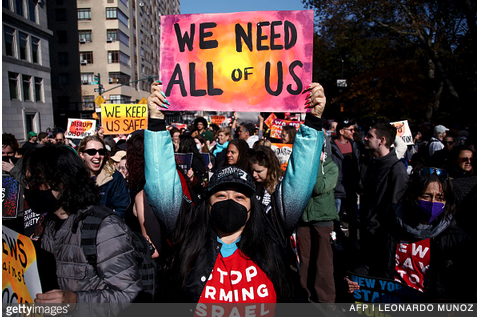Our current environmental crisis is escalating. It is already significantly affecting both mental health and the stability of North America’s climate and ecosystems.
Climate Psychology Alliance-North America intends to synthesize the insights of the various depth psychologies with an understanding of the unfolding environmental crisis.
Depth psychology’s understanding of the roles of emotions, defenses, and unconscious motivations can lead to more effective ways to comprehend and address this environmental and civilizational tipping point.
The organizers of CPA-NA hope to encourage insight and the solidarity necessary for promoting social change, while offering resources that invite collaboration and inspiration for mitigating and adapting to an uncertain future. Here are some of the people involved.
Beliefs, Values and Purpose

Our primary focus is to promote the understandings and tools of the depth psychologies, which include psychoanalysis, ecopsychology, ecotherapy, and Jungian psychology; and psycho-social points of view for acknowledging, mitigating, and adapting to the environmental crisis.
In addressing individual and societal obstacles to change, we highlight the importance of unconscious motivation (ie. greed, consumerism, destructiveness); defenses (ie. denial, splitting, dissociation); emotions (ie. emotional freezing, anxiety, grief, envy, and shame); and broader questions of value, meaning, and identity.
We seek to redefine psychology’s usual definition of the self and move it increasingly towards the “ecological self”1 that is coextensive with other beings and the life of the planet; and the “the species self”2 that identifies with the entire human species.
We note that the concept of self must also include an environmental identification where both self and ecosystem are co-determined by the other. The human self then may be regarded as intersubjective with and constantly interpenetrating its ecosystem. Any act of environmental destruction is then experienced as an assault on the self. Likewise, any act of environmental care is experienced as enhancing the self. This is so whether the assault or enhancement is in the present or the future.
Self as complex non-linear system with tipping points
We also believe depth psychologies need to further incorporate complexity theory as a way of understanding nonlinear systems and the tipping points that climate scientists suggest are approaching or have already been crossed (ie. arctic ice melt; extreme weather events).
This incorporation includes the implications such tipping points have for “risk perception”3, and for human capacities to rapidly adapt to changing environments.
We believe that the development of the “moral imagination”4 is integral to navigating our present environmental and civilizational tipping point. We agree, therefore, that ultimately “…The great changes…will not come about by the force of reason alone or the influence of fact. Rather, they will come by way of psychological transformation.”5
We see ourselves as “witnessing professionals” who “expose and bear witness to…[the] malignant normality”6 of the environmental crisis. We seek to understand and respond to the psychological suffering caused by the escalating direct (ie. flooding, wildfires), and indirect (ie. increased media reports), effects of the crisis.
As residents of Canada and the United States, we acknowledge the importance of respecting the inherent rights of the original inhabitants of North America through the implementation of the United Nations Declaration on the Rights of Indigenous Peoples. Indigenous peoples and communities remain leaders in protecting North American waters, landscapes, and biodiversity from the unsustainability of our industrial-growth economy. We need their initiative and knowledge now more than ever.
Environment as fundamental human right
We believe that the health of the environment is in itself a fundamental human right, and that the movement towards linking the environmental crisis to human rights protection may be one of the most effective ways to bring about needed ethical, social, and political policy change.
We acknowledge the privilege of residing amidst the vast natural beauty, abundant resources, and economic wealth of North America, while at the same time acknowledging that many of our lifestyles based on these resources continue to contribute greatly to the current environmental predicament.
We acknowledge that the worst symptoms of the environmental crisis are effecting, and will effect, the world’s poorest and most vulnerable people the most.
We believe that the intersecting crises of environmental degradation, social justice, and income inequality require integrated solutions based on cooperation, care, and consent between a wide range of interest groups.
We believe in the notion of a just transition which implies that the move away from a high-carbon economy needs to be equitable, where those who will be most vulnerable to the effects of the personal and economic disruptive changes of the transition, are heard, recognized for their contribution, and respectfully considered in policy decisions aimed at sustainability.
Our present is suffused by the future
Central to our understanding is that our world is “one of limits [vs. limitless growth] and that this understanding must be internalized as a set of duties.”7 We believe that the acceptance of limits requires mourning and is a mark of psychological maturity, health, and the capacity to care for that which sustains us.
We believe that in the 21st century “the present is drenched with the future, bringing a feeling for humanity’s whole future, the unsettling presence of times to come.”8 At this turning point, CPA-NA will strive to contribute to the vital cultural shifts from dominance to partnership; from fragmentation to connection; and from insecurity to interdependence.9 Altruism and cooperation are more fundamental to our nature than we recognize. We believe that the time is NOW for large-scale, decisive, collective action.
CPA-NA, as part of an international CPA network, attempts to educate and connect concerned and caring individuals, and organizations, in order to build an increasingly critical mass of change agents. The environmental crisis is “an invitation to build, innovate, and effect change, a pathway that awakens creativity, compassion, and genius.”10
CPA-NA affirms that “…Preventing the collapse of human civilization requires nothing less than a wholesale transformation of dominant cultural patterns.”11
CPA-NA welcomes your interest, ideas, and involvement.
References
1 Arne Naess in Ecotherapy: Healing With Nature in Mind, ed. Buzzell and Chalquist, 2009. 2 The Climate Swerve, Robert Jay Lifton, 2017. 3 Psychoanalysis and Ecology at the Edge of Chaos, Joseph Dodds, 2011. 4 Climate Crisis, Psychoanalysis, and Radical Ethics, Donna Orange, 2017. 5 The Voice of the Earth: An Exploration of Ecopsychology, Theodore Roszak,1992. 6 The Climate Swerve, Lifton. 7 Defiant Earth: The Fate of Humans in the Anthropocene, Clive Hamilton, 2017. 8 Defiant Earth, Hamilton. 9 The Declaration of Interdependence, The David Suzuki Foundation (www.davidsuzuki.org). 10 Drawdown, ed. Paul Hawken, 2017. 11 State of the World, Transforming Cultures, The Worldwatch Institute, 2010 (www.worldwatch.org).



